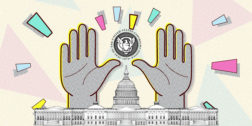For the past several months, the U.S. Copyright Office has been collecting comments on a part of the Digital Millennium Copyright Act (DMCA), specifically related to intermediary liability and safe harbors. Under the current law, internet companies – think, for example, of Facebook, or Reddit, or Wikimedia – are able to offer their services without legal exposure if a user uploads content in violation of copyright law, as long as they follow proper takedown procedures upon being informed of the action.
Last year, we filed comments in the first round of this proceeding, and today, we have made a second submission in response to the Copyright Office’s request for additional input. Across our filings and other engagement on this issue, we identify major concerns with some of the proposals being considered – changes that would greatly harm content creators, the public and intermediaries. Some of the proposals seem to be more about manipulating copyright law to achieve another agenda, these filings need to be rejected.
Mandating content blocking technology is a bad idea – bad for users, bad for businesses, and not effective at addressing the problem of copyright infringement. We’re fighting this issue not only in the United States, but also in Europe, because it goes against the letter and the spirit of copyright law, and poses immense risk to the internet’s benefits for social and economic activity.
Separately, we believe automated systems, currently in place on sites such as YouTube, are very ineffective at assessing fair use and copyright infringement, as they can’t consider context. We are making suggestions to ease or eliminate the burden of those automated systems on those acting within the law.
Ultimately, to achieve its constitutional purpose and deliver ultimate benefit for people and for the internet, copyright practice must recognize that members of the general public are no longer just consumers, but creators. Copyright issues relating to creator’s artistic inputs are often far more important than any copyright interest in their creative output.
The greatest risk of tinkering with the safe harbor setup today is interfering with the fulfillment of the public’s desire to create, remix and share content. In contrast, recognizing and protecting that interest creates the greatest opportunity for positive policy change. We continue to be optimistic about the possibility of seeing such change at the end of this consultation process.














